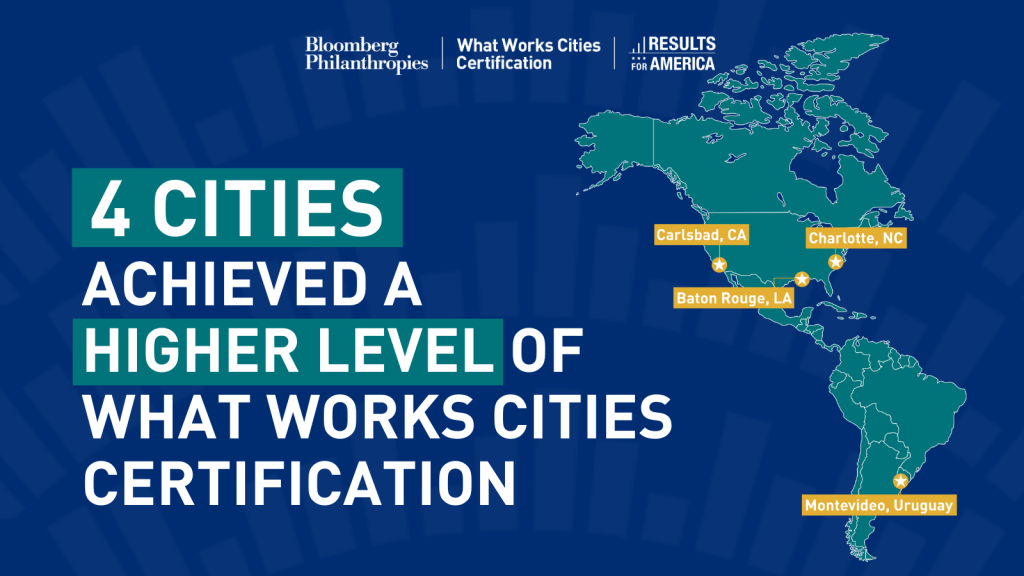For city leaders, making progress on their City Hall’s data capabilities is not a one-and-done exercise. Rather, it’s about continuous improvement — taking steps that build on one another and adapt to new technology or changed circumstances.
That’s why at What Works Cities Certification, we talk a lot about cities being on a “data journey.” This work is constant, repeated and refined, and grows over time. It’s also why we designed our Certification program with multiple levels — Silver, Gold and Platinum.
Achieving Certification at any of these levels signifies that a city is among the very best at using data and evidence to improve the lives of residents. Yet even the best can — and do — get better. Our Certification criteria include 43 data best practices across eight foundational practices. There’s always room to move up.
So as we celebrate the latest round of cities to achieve Certification for the first time, we also acknowledge the efforts of leading cities who are working hard to raise their data game. In this Certification cycle, these four cities “leveled up” to new heights.
- Baton Rouge, Louisiana (from Silver to Gold) used data to make several improvements to the way the City buys goods and services. For example, when a disparity study showed that women- and minority-owned businesses were getting only 4 percent of the City’s contract dollars, Mayor Sharon Weston Broome set a goal of raising that to 25 percent. In addition, city leaders used data to dig into delays in processing professional services. Subsequent changes cut the procurement timeline from 51 to 20 days.
- Carlsbad, California (from Silver to Gold) achieved a 73 percent decrease in homelessness among veterans by leveraging data in new ways. A key to success was maintaining real-time personalized data on veterans experiencing homelessness, and using that information to catalyze collaboration among service providers to get veterans into permanent housing. The City also adopted its first “data service standard” aimed at making sure that new data products are designed to be as useful as possible for city leaders, residents, and others who may benefit.
- Charlotte, North Carolina (from Silver to Gold) used data to identify neighborhoods where residents are struggling to keep up with rising housing costs. This Displacement Risk Analysis builds on the City’s efforts to create a citywide standard of excellence in the collection, dissemination and use of disaggregated data in decision-making. This work forms the basis of Charlotte’s interventions to keep people in stable housing and a framework for equitable growth within the City’s 2040 Comprehensive Plan.
- Montevideo, Uruguay (from Silver to Gold) marshaled data to keep residents safe during a recent drought and water crisis. As salinity levels in tap water spiked, city leaders publicly shared water-test data daily, enabling pregnant women, people with hypertension, and others to know when water was safe to drink. They also used data to identify vulnerable populations who would benefit most from fresh water deliveries. This work built on a major push to build a culture of data-driven decision making in City Hall; staff were offered a financial incentive for scaling data and evidence practices which moved the city to Gold Certification.
Technology changes, best practices change, the needs of residents change – cities’ data practices must evolve to meet the changes. What Works Cities Certification is proud to recognize these four cities for doing just that.
